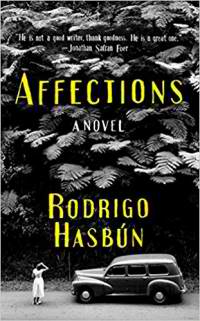Blame by Jeff Abbott
 Friday, October 13, 2017 at 10:01AM
Friday, October 13, 2017 at 10:01AM 
Published by Grand Central Publishing on July 18, 2017
Blame is often assigned as a way to avoid the powerless feeling that comes from accepting that tragic events are usually beyond our control. Bad things happen, but the pain of living with that reality is displaced by anger if we can blame someone for the tragedy. That, at least, is one theory of blame advanced in a novel that explores blame from several perspectives.
Jane Norton was in a car accident when she was seventeen. Two years later, she has no memory of the crash or of much of her life during the three years before the crash. David Hall died in the same accident. David’s mother and most of his friends blame Jane for his death because of a note that was found at the crash scene. Someone using the name Liv Danger has hacked Jane’s social media site and is threatening to reveal the truth about her role in David’s death — a truth Jane does not herself know. The words ALL WILL PAY appear in Liv Danger’s message. It’s also chalked on David’s gravestone on the anniversary of his death.
Jane is soon caught in a web of deceit as individuals (some of whom she trusts) appear to be withholding information or lying to her, including her mother, a girl who claims to have been her best friend before the accident, a couple of boys who may or may not have been her boyfriend before the accident, a private detective who investigated the accident, and a psychology student.
This is the kind of novel where a number of violent crimes are committed and each time, suspicion falls on the protagonist. The reader, like Jane, is challenged to figure out who is responsible for the mayhem, why it is taking place, which of the characters are telling Jane the truth, which characters are lying, and why the liars are deceiving her.
Jeff Abbott handles all of that with skill. A reader might guess some aspects of the novel’s resolution but I doubt that most readers will figure out the roles played by all the characters before Abbott reveals them. Abbott didn’t quite sell me on the motivations of certain characters, but stretching credulity for the sake of delivering a surprising story is a common feature of modern thrillers and, at least in this case, not one that greatly diminished my reading pleasure.
The plot is intricate and it generally held my interest, although the story is a bit drawn out, creating an uneven pace that builds suspense but lets it dissipate. I suspect this novel could have been 50 to 100 pages shorter without omitting anything crucial. The ending also leans toward melodrama. Everything resolves too neatly, delivering a form of justice to the characters who deserved it in a way that seems too convenient.
Blame has value beyond the plot. The real target of Blame is small town pettiness, the gossipy judgment that is viral in cloistered communities, as residents take secret (or open) delight in the embarrassment of others. Abbott also targets “confessional” bloggers who make celebrities of their family members (as does the writer of a mommy blog) without considering how that exposure will affect the child. I enjoyed reading Blame for those background themes almost as much as I enjoyed the plot ... maybe more.
RECOMMENDED



